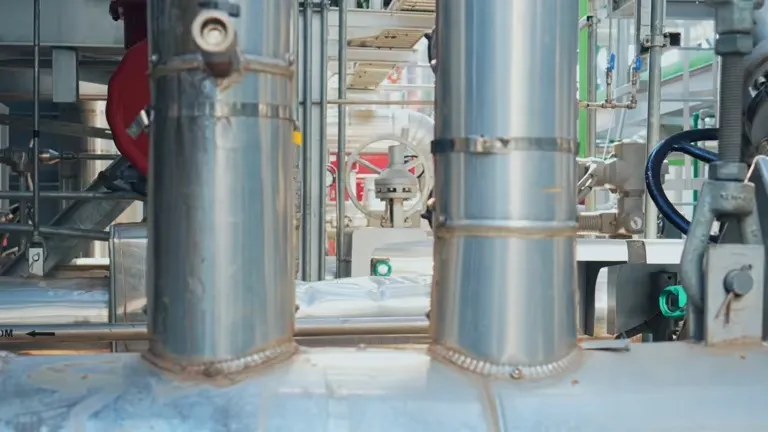
Boiler Replacement in Shrewsbury, PA
Replacing your boiler is one of the most impactful upgrades you can make for year-round comfort, energy savings, and long-term reliability in Shrewsbury, PA. With cold winters and an extended heating season in southern York County, older or undersized boilers can drive up fuel bills, produce inconsistent heat in rooms with radiators or baseboards, and require frequent repairs.
Why replace a boiler in Shrewsbury, PA
- Age and reliability: Boilers older than 15 years are more likely to fail and lose efficiency. Frequent breakdowns during winter are a strong sign replacement will be more economical than repeated repairs.
- Efficiency: Older non-condensing boilers commonly operate at 70–80% AFUE. Modern condensing boilers reach 90–98% AFUE, which reduces fuel use and lowers bills during Shrewsbury’s long heating season.
- Comfort and zoning: Right-sized, modern boilers paired with proper distribution (radiators, baseboard, or radiant) provide more consistent room-by-room comfort in older Shrewsbury houses with varied heat loads.
- Fuel considerations: Many homes in the area use natural gas, propane, or oil. The replacement approach differs by fuel type; newer high-efficiency condensing units are widely available for gas and propane, while oil-fired replacements or conversions may require additional planning.
Common boiler problems that signal replacement
- Repeated repairs for leaks, cracked heat exchangers, or burner failure
- Rising fuel bills despite regular maintenance
- Cold spots in rooms or slow recovery after prolonged use
- Noisy operation, frequent short-cycling, or pilot/burner ignition failures
- Outdated equipment lacking modern efficiency controls or safety features
Assessment: how professionals size and recommend a replacement
A thorough on-site evaluation is the first step:
- System age and condition review, including visual inspection of heat exchanger, controls, and piping
- Heat load calculation for your home (Manual J/heat loss) to determine the correct boiler capacity — right-sizing prevents short-cycling and improves efficiency
- Distribution evaluation: checking radiators, baseboards, and piping condition and compatibility with condensing boilers
- Fuel type and venting assessment to confirm the best high-efficiency options for your property
Recommendations focus on matching a high-efficiency, appropriately sized boiler to your home’s heat load and distribution system. In many Shrewsbury homes a modulating-condensing (mod-con) boiler is the top recommendation because it adjusts output to demand and recovers more heat from exhaust gases.
Replacement options and equipment choices
- High-efficiency condensing boilers (gas/propane): Best energy savings for compatible hydronic systems. Require proper condensate drainage and sometimes different venting.
- Non-condensing high-efficiency boilers: Suitable when venting or condensate handling prevents condensing units.
- Oil-fired replacements: Modern oil boilers are more efficient than older units; conversion to propane or gas may be an option depending on fuel availability and infrastructure.
- Right-sized system design: Single-boiler with outdoor reset controls, or multi-zone setups for homes with disparate heating needs.
Removal, disposal, and local code compliance
- Safe disconnection and removal of old equipment, including oil line and tank considerations if applicable
- Proper disposal and recycling of metals and components per local regulations
- Permits and inspections: Replacements typically require mechanical permits and final inspections coordinated with local building authorities in York County to ensure code compliance
Typical installation timeline
- Initial assessment and quote: 1 visit (same or next-day in urgent situations)
- Selecting equipment and scheduling: 1–2 weeks depending on inventory and permits
- Installation day(s): 1–3 days for most standard residential boilers (longer if piping upgrades, oil tank removal, or major venting work are required)
- Post-installation startup and testing: System balancing, control programming, and homeowner walkthrough upon completion
Cost estimates and financing options
- Typical residential boiler replacement ranges vary widely based on fuel type, capacity, and installation complexity:
- Natural gas/propane condensing boiler: commonly between $5,000 and $12,000
- Oil boiler replacements or conversions: commonly between $6,000 and $15,000
- Complex jobs (new venting, piping upgrades, or multi-zone retrofits) can exceed these ranges
- Financing: Many homeowners use low-monthly payment plans, lender-backed HVAC financing, or in-house options to spread the investment. Loan terms and availability will vary; discuss qualification and terms with your financing provider.
Rebates and energy-savings comparisons
- Utility and manufacturer rebates: Pennsylvania utilities and boiler manufacturers frequently offer rebates for high-efficiency equipment. Available programs change seasonally, so verify current incentives before purchase.
- Federal tax credits: Certain high-efficiency heating upgrades may qualify for federal energy tax credits; eligibility depends on equipment specifications and current rules.
- Energy-savings expectations: Replacing an older 70–80% AFUE boiler with a 90–95% condensing boiler commonly yields 15–30% lower annual heating fuel use, depending on your home’s insulation, thermostat settings, and fuel costs. Homes with very old, inefficient equipment can see larger percentage savings.
Warranties, maintenance, and long-term reliability
- Manufacturer warranties: Heat exchangers are typically covered for 5–10 years on higher-end models; parts and labor warranties vary (commonly 1–5 years). Extended warranty options may be available.
- Routine maintenance: Annual boiler tune-ups, combustion analysis, and control checks preserve efficiency and extend lifespan. A maintenance plan helps keep warranties valid and reduces emergency failures.
- Expected lifespan: Modern boilers installed and maintained correctly can last 15–25 years depending on fuel, usage, and maintenance.
How the replacement process typically proceeds (scheduling overview)
- On-site assessment and written estimate based on heat load and system condition
- Equipment selection and permit application
- Agreed installation date with pre-installation checklist (clear access, fuel supply check)
- Installation, startup, testing, and owner orientation
- Final inspection and documentation, including warranty registration and maintenance recommendations


Enjoy flexible financing options that make upgrading or repairing your HVAC system easy and budget-friendly.










